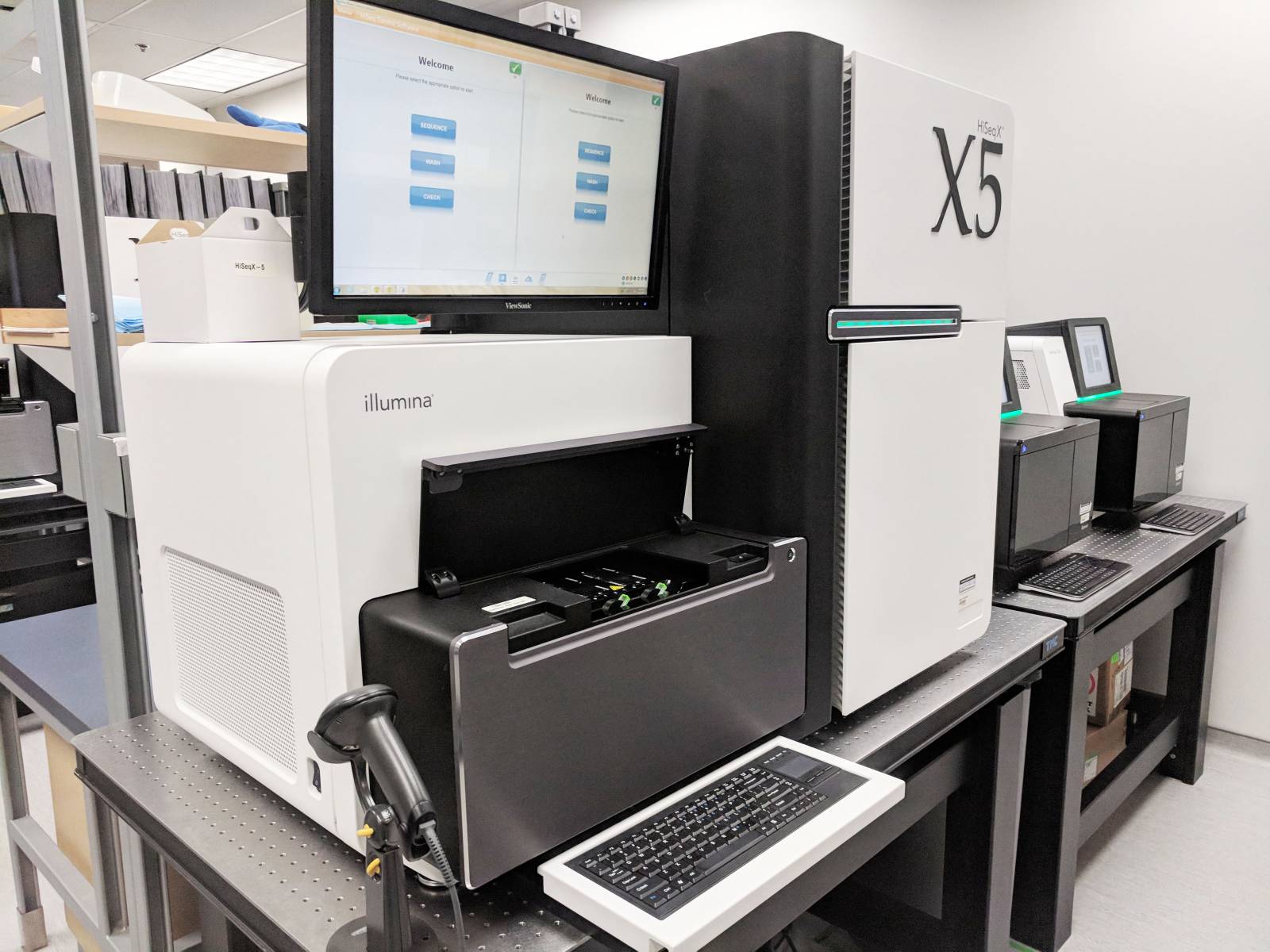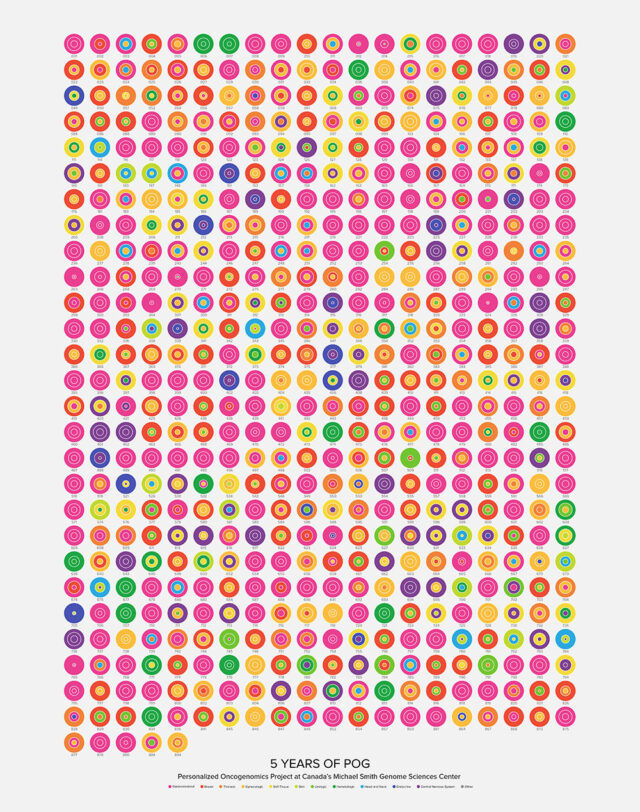Experimental study revolutionizes cancer care across globe
February 22, 2018
Found in Genome Sciences Centre, Genomics
The origins of POG
We chart the origins of the Personalized Onco-Genomics (POG) platform to an experience that occurred around 9 years ago. We had been building the capacity to sequence all 3+ billion letters of human cancer genomes. At the time there was a patient with a rare form of cancer that had been treated with surgery and radiation, but the cancer had come back. We were challenged to find all the mutations (or genetic “spelling mistakes”) and gene activity changes in the patient’s cancer genome to identify those that might have caused the patient’s cancer. By searching through the genome data, we wanted to see if we could identify an important genetic alteration – or “target”- that might be promoting the growth of the tumour. If so, we felt we might be able to find a treatment to interfere with the cancer promoting properties of that target.

We had never done this before and so didn’t have a clear path forward. Further, the technology was primitive compared to what we have today. But, thanks to BC Cancer Foundation donors, we were able to assemble the resources to try. In the genome data, we were able to find what we thought was the cause of the cancer. We then used that data to propose and apply a treatment, which successfully halted the growth of the tumour and caused it to shrink. This was the first time anyone had ever used cancer genome data in this way, and was surprising to many.
This experience taught us that there was potential in using genome analysis to inform treatment planning for cancer patients. But it wasn’t until several years after that first experience that we were able to start to test this potential in a more systemic way, due to advances in technology and successes in obtaining funding for new, higher throughput instrumentation. Due to these technical advances, and our improved understanding of tumour biology that emerged from studies all over the world, it became increasingly possible to generate and interpret patient genome data to inform treatment planning. This concept morphed into what we now know as the Personalized Onco-Genomics program, or POG.
POG revolutionizing cancer care
To date, POG achievements are numerous and profound. First and foremost, I’m very proud of the way that we’ve managed to integrate our work with other research taking place at BC Cancer, as well as in the clinical setting. This has allowed us the opportunity to extend the genome technology into realms that improve patient care. POG has fuelled the creation of arguably one of the most sophisticated, genome-savvy groups of medical oncologists and pathologists in the world at BC Cancer. We’re also very proud that we’re able to share our knowledge with research groups around the globe. This allows other jurisdictions to take advantage of the success that we are enjoying here, and bring the benefits of our work to even more patients.

POG is now more than a research program. It is a patient-oriented platform upon which new projects and programs can be built. Many research projects, here at BC Cancer and elsewhere, are drawing from POG data and technology to make advances in our battle against cancer. I view the broad utility of the platform as very exciting, and our ability to use genome science at BC Cancer is profoundly contributing to a brighter future in cancer knowledge and treatment.
Philanthropy fuels POG
BC Cancer Foundation donors have long been essential to POG, laying the groundwork for it more than 20 years ago. The Genome Sciences Centre, the technology centre upon which POG is based, was founded in the late 1990s by BC Cancer Foundation donors who believed in a vision articulated by Victor Ling and Nobel laureate Dr. Michael Smith, a vision that genomics would someday be central to cancer research and care. This commitment allowed the centre to recruit researchers, including myself. Together we were able to build Canada’s first large-scale genomics research centre with a focus on cancer.
The idea at the time was to create a technology tour de force, using the tools of genome science to map out all the spelling mistakes in as many tumours as possible, and use that information to advance BC Cancer’s mission.
We couldn’t know exactly what path we would take to achieve this, but we had a vision, were convinced of its value, and worked very hard at building our vision for 20 years. And here we are today, with new technology that can systemically read out all the spelling mistakes in the genetic code of 6,000 cancer patients every year, all the while generating new knowledge and insights that are propelling us forward in our fight against cancer.
BC Cancer Foundation donors were with us from the very beginning and have remained absolutely fundamental to the initiation and now the sustenance of the POG program. Thank you very much for your support!
Next week, I’ll discuss the future of POG and personalized treatment here at BC Cancer.
Thanks for reading,
Marco


